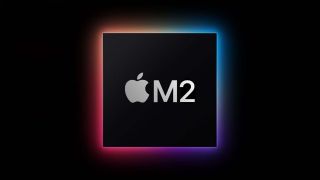
With the Apple March event almost upon us, there’s going to be a lot of talk about the M2 chip, understandably.
When Apple revealed its new in-house silicon with the Apple M1 chip back in late 2020, the Cupertino tech goliath put to rest any doubts about the quality of the newest generation of ARM-based chips. When it followed up a year later with the M1 Pro and M1 Max silicon in the 14-inch MacBook Pro (2021) and 16-inch MacBook Pro (2021), we were even more impressed with how Apple improved on an already great system-on-a-chip (SoC).
So understandably, we and a lot of other people are pretty psyched to see what Apple does with its highly anticipated M2. However, some people might be surprised or even disappointed this week if (hopefully when) the M2 is announced, since it almost certainly won’t be more powerful than the M1 Pro and M1 Max chips, even though those chips are ‘last-gen’ chips.
That’s why it’s important to set expectations about what the M2 is likely to be, rather than fixate on the fact that 2 is a larger number than 1. In this case, it’s what comes after the number that matters more than anything.
The M2 won’t be the fastest or most powerful chip Apple has produced
While the Apple M2 does represent the first chip in the next-generation of Apple silicon, it’s important to remember who the M2 is meant to satisfy, and why it shouldn’t be compared against the M1 Pro and M1 Max.
When Apple released its M1 chip, it’s notable that it launched in the MacBook Air, the smallest of the three MacBook Pro models, the 13-inch MacBook Pro, and the Mac mini.
These are all targeted at the general computing audience and those professionals who need something more portable than powerful. This is even more apparent with the introduction of the 24-inch iMac last year, while the M1 Pro and M1 Max came to the high-end MacBooks which are much more targeted at creative pros who need beefier hardware.
That laptop hardware is barely six months old and remains a seriously powerful bit of kit, and the M2 chip is not going to outperform it – nor should it. The M2 chip is meant to be the successor of the M1, not the M1 Pro or M1 Max – just as an Intel Core i5 processor isn’t meant to outperform the previous generation’s Core i7 or Core i9 processors – and the M2 will be designed accordingly.
The M2 chip needs to be compared to other chips in its class
Just like Intel or AMD chips, the M2 belongs to a specific class of silicon, namely the general purpose computing market, while the Pro and Max chips cater to serious and hardcore professionals, respectively.
Sometimes a chip in one class seriously punches above its weight, and can outperform the best processor of the previous generation in the next-highest class, but that isn’t the goal and is fairly rare.
If the M2 turns out to be one hell of a processor, at best it will beat out the M1 Pro in a few categories or use cases, like video editing. There’s almost no universe where an M2 will be able to compete with an M1 Max outside of some kind of major architecture revolution, the way even the entry-level Intel Alder Lake chips blow away Intel Comet Lake and Rocket Lake processors.
For Apple, the move from Intel to its own silicon was the revolution, and now its job is to continue to deliver better Apple processors. The fair apples-to-apples comparison here is to compare the Apple M2 against the previous-gen Apple M1 chip, and in that we hope to see a healthy improvement to justify the generation jump, not the fastest processor ever made. If that turned out to be the case, then we’d have crossed through some kind of engineering singularity where everything we knew about computer architecture no longer applies.
The Apple M2 could show us what is in store for the M2 Pro and M2 Max
One thing that the Apple M2 chip should show us is the kind of generational improvement we can expect out of Apple’s next-gen silicon.
While it’s impossible to say that a 15% performance improvement from the M1 to the M2 will translate into the same kind of jump from M1 Pro to M2 Pro, or M1 Max to M2 Max, it’s a pretty good signal for how well Apple’s silicon is iterating from generation to generation.
Even that is tough to predict though, since one generation of improvement doesn’t mean that the same kind of improvement can be taken for granted – just ask Intel pre-Alder Lake.
Still, a major performance boost for the M2 is a good sign of things to come from Cupertino across its silicon portfolio, so it’s still something that we’re going to be looking at closely this week.
- Check out the best MacBook and Macs

John (He/Him) is a Computing Staff Writer here at TechRadar and is also a programmer, gamer, activist, and Brooklyn College alum currently living in Brooklyn, NY.
Named by the CTA as a CES 2020 Media Trailblazer for his science and technology reporting, John specializes in all areas of computer science, including industry news, hardware reviews, PC gaming, as well as general science writing and the social impact of the tech industry.
You can find him online on Twitter at @thisdotjohn
Currently playing: EVE Online, Sucker for Love: First Date, GTFO, Marvel’s Guardians of the Galaxy.





